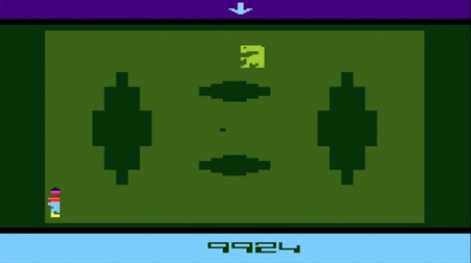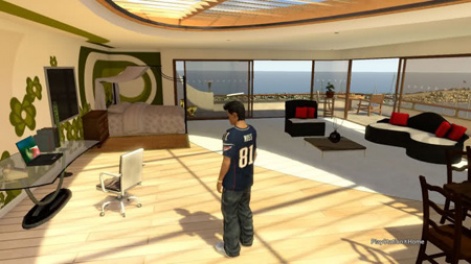Most of the advice people give you is, understandably, about how to be successful.
However, sometime I think we need a bit of help trying to understand a bit more about failure and when to call it a day.
Okay, that might sound a bit depressing as an idea, but I was inspired by a talk in Ottawa recently at OIGC by Howard Scott Warshaw.
Howard is the guy credited with the worst game of all time - ET The Extra Terrestrial - the game which some have argued broke Atari and was at the time accused of 'killing the games industry'.
The first thing to question is, of course, if it was indeed a failure.
From his perspective it wasn't.
This was an incredible era with games like Howard's own highly successful Indiana Jones, introducing some of the earliest video game mechanics; the very giants' shoulders we stand on now.
Another perspective
We are reminded that this was a game conceived and delivered to market in just five weeks. Something even in these simpler (?) times was considered crazy.
Put aside the infamous stories of the dumping of countless cartridges in a landfill in New Mexico, here was a game which had to be delivered in time for the Christmas market. And it was.

Atari's problems were (of course) deeper than this game.
Howard told us how on the recent dig to recover the cartridges they found more games than just ET. The game was flawed but, despite the mythology saying otherwise, it was playable.
That's a remarkable achievement. But it makes us ask one of the most important questions. Should he have said 'Yes' in the first place?
Measure of failure
The trouble with taking on time dependent projects is that you can't control all the variables. You can't always know if, like Atari, the company around you is going to implode; and even when you do it's all too tempting to try to save it.
Pride and ambition can often be our undoing, not just because we take on impossible projects, but because we often become emotionally involved even when they can't realistically be saved or have already written off by the audience.

PlayStation Home is a personal example where the benchmark for success was set way too high and the result was at launch. it became considered a failure for its lack of content, trophy rooms, working virtual TVs, etc.
Despite doing some great numbers, it never had a fighting chance to change that image of failure.
Activation energy
Similarly, I've worked with a number of indies who had a great concept, but flawed launch.
The initial exposure to the market is so important to create momentum that when you fail to spark attention in the audience, you can't get the attention of the platform holder to get featured and vitally you don't have the ongoing income to reinvest in customer acquisition and updates.
This lack of momentum can lead to a slow leaking wound which drains your team of its strength. It forces you to cut corners and make half measures, just to get the next sale; but that never (quite) leads to the expected turnaround.
Success in chunks
This presents a dilemma. How can we fail fast and fail early if by launching before the game is truly 'ready' we risk destroying our momentum?
We need a strategy to mitigate our risk of a failed launch and find a way to take what audience we get with us.
We can reduce risks by reducing the size of the audience we release to initially, of course. That's why Alpha, Closed Beta and Open Beta Tests (and arguably Early Access) for services are so popular. They allow players to forgive us for trying.
This lack of momentum can lead to a slow leaking wound which drains your team of its strength.
However, we must not take this as an excuse to be shoddy in our deliveries. If we don't offer a polished gem no player will care about the future possibilities.
Instead each release has to be a simple and complete experience which allows us to introduce the game element by element. Carefully adding one isolatable new concept each release lets us test our experience as we go along and foreshadow what might be coming next.
Pulse of a service
This kind of 'Lean Service Approach' can build on your launch momentum, breathing life as part of a predictable narrative of releases.
We can create a pulse in the ongoing release of the game. If we do this frequently enough, communicate that we will do it and reliably deliver, we are allowed to sustain the initial interest and even overcome those occasions where we will inevitably missed the mark.
Showing we are continuing to invest in the game, develop it further and fix the mistakes players tell us about will sustain trust; a much under valued asset.
But even this won't always work. We can only listen to players who are still there and even assuming we use all the data we can as effectively as possible, sometimes the idea doesn't take off.
Whether is because of timing, execution, context, art, narrative doesn't matter. Sometimes even with the best planned projects you have to decide to stop and move on.
This is an extremely difficult decision, especially if you have a near success as the temptation is to keep fiddling and you will tell yourself that it will take just one more build and that will be enough. You don't want to lose out because of failing to stick it out either, of course.
Failure by decline
Making the right decision to continue or stop is helped by taking external perspective; the ability to sit back and look at hard at what you are doing and why.
The numbers can help you here. Not the vanity things like total downloads or percentage of payers but the rate that these numbers are changing.
- Are we getting more users faster at a lower CPI or fewer for a higher one?
- Are we seeing the rate of conversion to paying change?
- What's the average spend?
- Can we look at harder variables like the number of plays per day and number of days playing since the first download?
- How does this change after the first purchase?
- How often are players sharing their game experience with others?
We should also look at external influencers and their response to our game over time.
- Are the platforms still featuring our game?
- What do reviewers have to say when we tell them about our next update?
- How many retweets do we get when we make an announcement?
- And, more importantly, is this going up or down?
- What is the response of new platforms when we talk to them about porting our game?
Then there are the internal factors.
- How often do we have to cut corners rather than deliver a feature properly?
- Are we covering costs and still have enough to put something back into marketing?
- Is this getting better or worse?
Endgame
Killing our darlings is painful and difficult. Knowing when to do it and being prepared for it is challenging.
However, it's vital we acknowledge that all things come to an end.
All games (well, all products and services) go through a lifecycle from Introduction to Growth, Maturity and finally Decline. All players go from Discovery to Learning, Engaging and end up Churning.
But we have to remember that from every test, trial and experiment we can learn, but if we keep failing the same way we have stopped learning and we aren't doing anyone any favours; just wasting our investor's money.
We have to make the best and most determined delivery of our project but if we know it's not working, stopping lets us move on to the next project with a greater understanding.
As Howard so eloquently put it at OIGC - "Embrace your failure... just try not to repeat your mistakes!"
Oscar Clark is a consultant and evangelist for Everyplay, the free SDK that records and shares your favourite moments of play. Everyplay was acquired by Unity Technologies in March 2014.
Find out more at developer.everyplay.com
He is also author of "Games As A Service: How Free To Play Design Can Make Better Games" published by Focal Press is now available on Amazon as well as Kindle, iBooks and Kobo.
To follow Oscar on Twitter, check out @Athanateus





















